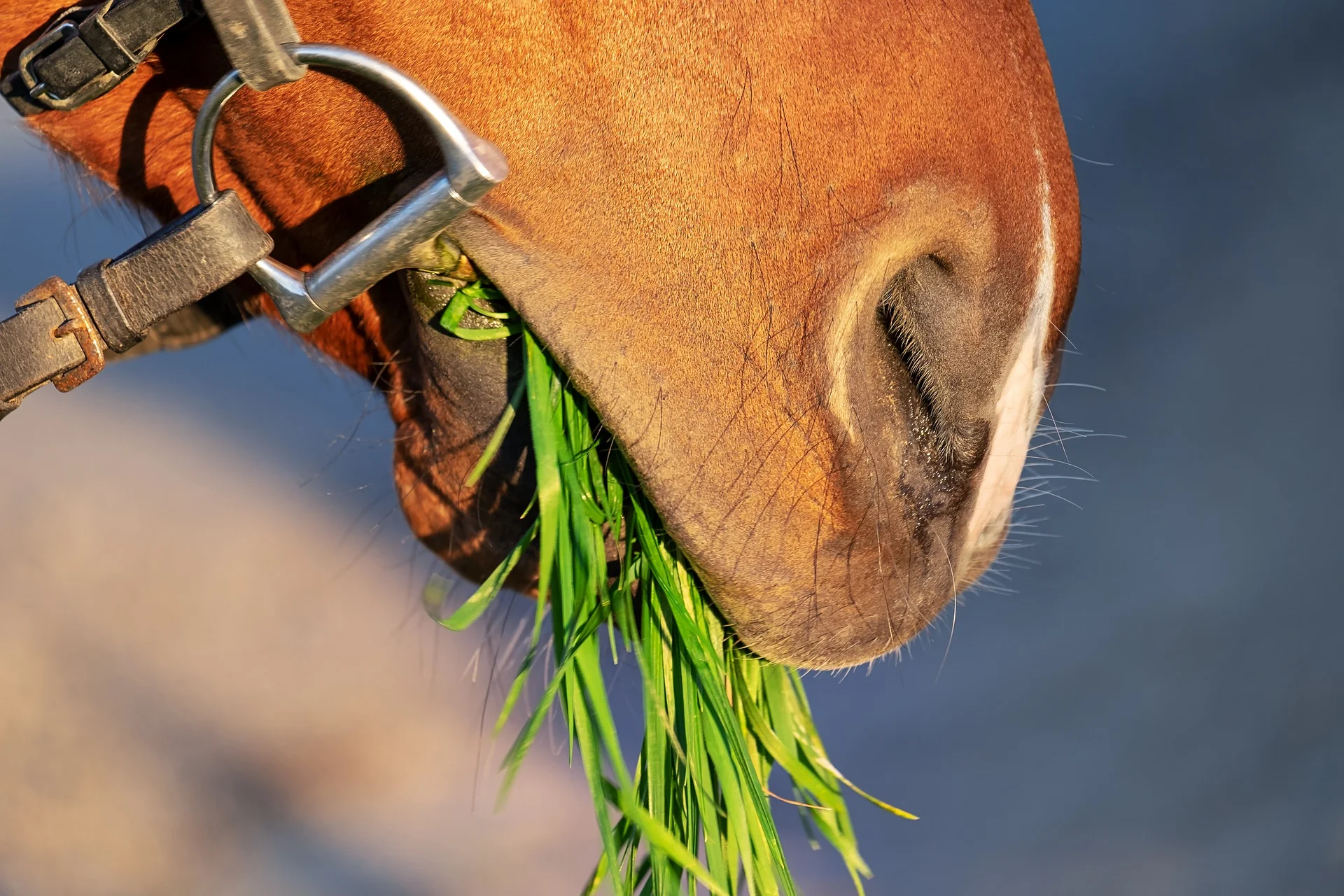Mulling It Over - Part 3
Once again we are walking slowly through a particular portion of scripture. I love to take a small piece, maybe a few chapters, one chapter or in this case, just a few verses and completely devour it, seeing what we can get out of His Word. I always find it fascinating that God can speak to us anew, even from a portion of scripture that we have read over and over. Just like this horse is chewing up that delectable grass, we too can enjoy the delights of God's word.
PIxabay
We are looking at 2 Timothy 2:20-26:
“20 Now in a large house there are not only gold and silver vessels, but also vessels of wood and of earthenware, and some to honor and some to dishonor.
21 Therefore, if anyone cleanses himself from these things, he will be a vessel for honor, sanctified, useful to the Master, prepared for every good work.
22 Now flee from youthful lusts and pursue righteousness, faith, love and peace, with those who call on the Lord from a pure heart.
23 But refuse foolish and ignorant speculations, knowing that they produce quarrels.
24 The Lord’s bond-servant must not be quarrelsome, but be kind to all, able to teach, patient when wronged,
25 with gentleness correcting those who are in opposition, if perhaps God may grant them repentance leading to the knowledge of the truth,
26 and they may come to their senses and escape from the snare of the devil, having been held captive by him to do his will.”
If you are just joining me today, you can go back and see the first two posts on: 2 Timothy 2:20 and 2 Timothy 2:21, by clicking on the links. Today we are chewing on verse 22.
“22 Now flee from youthful lusts and pursue righteousness, faith, love and peace, with those who call on the Lord from a pure heart.”
This verse is pretty straight forward, but lets take a closer look.
Now flee...
Is there anything more able to get your adrenaline churning, than when someone yells, "Ruuuuuunnnnn"? Think about a few of the movies that have been on the big screen, Star Wars, Indian Jones. The Avengers, or how about the iconic Forrest Gump scene:
This is what Paul is telling us to do. Run as fast as you can away from those things that cause us to sin and turn away from God. We are to flee, like those monsters chasing us are going to eat us alive.
...from youthful lusts....
Paul was writing this letter to a young man, Timothy, who had become a pastor of one of the early churches. He encourages Timothy to flee those youthful lusts, or the things that so commonly grab our attention as young people: improper relationships, money, power, popularity and feeding our appetites are all things that constantly pull at us when we are young. It is sad that so many give in to these distractions, rather than waiting on God and allowing HIm to fill their every need.
Pixabay
Let me draw this out a bit further. I believe as mature Christians we can also be distracted by many things that are less than God's best for us. Think about the shows you watch, the food you eat, the things you buy. How many of these are done to fulfill our lust. Lust isn't just about sex. It is anything that takes precedent over our relationship with God. Am I saying you can't watch that show you love, or eat that cake or buy that dress? No, but we do need to allow God to monitor our actions and speak truth to us, if these types of things are becoming a problem. For some, moderation is easy, for others, myself included, not so much. Sometimes God has to rip things out of our lives to bring us into line with where He wants us to be.
...and pursue righteousness, faith, love and peace...
I decided to lump all of these characteristics together. These are four things we are to pursue. Behind us are the things we are to flee. In front of us is what we are to pursue. Righteousness or godliness, faith or belief, love and peace. We need to chase after these things as if they are rare butterflies that we are wanting to add to our collection.
Pixabay
People who enjoy hobbies such as butterfly or bird watching, desire to see species which are rare or very rarely seen. It is their passion, just as a rock climber loves to scale mountains or an artist loves to paint or mold something out of clay. They have a passion about discovering or creating something new. In the same way we are to pursue these specific qualities We are to have a passion about pursuing God. He shouldn't be someone we occasionally think about, but a being we have a living and passionate relationship with. If we are pursuing the characteristics of righteousness, faith, love and peace we will be pursuing the author who created them.
...with those who call on the Lord with a pure heart.
Not only are we to pursue those characteristics, but we are to do it with others who call on the Lord with a pure heart. This seems to encourage us to be in a fellowship with other believers. My husband and I are between churches right now, but we both feel the need to get back into a regular fellowship. It is in the corporate worship and gathering together of like minded people, that we find accountability, stability and the sort of input that encourages growth in our relationship with Christ.
Pixabay
That being said, let me say, I know what it is like to feel as though the church let you down. Or, to feel like an outsider because of circumstances you had no control over. I get it, and sometimes God will draw us out of the body, to walk a path through a valley, in which we are alone, but I do not believe He intends that we stay there. We need each other, even if only to aggravate each other enough to pursue God with even more passion! Ha, ha.
I hope you are enjoying this study of 2 Timothy 2 and I hope today you will examine your own life and see what God is trying to say to you. Is there something you need to flee? Do you need to have more passion in your pursuit of God, or like us, do you need to get back into a fellowship with other believers? Seek God for wisdom and help. He is always faithful.
Have a great day.

















